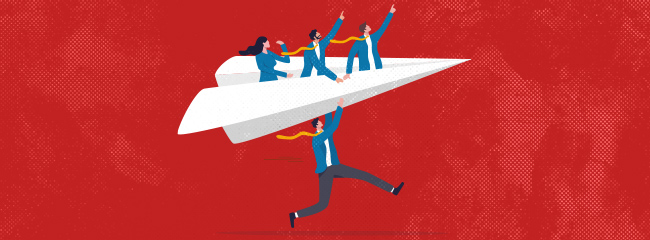Have you ever tried to change a pesky habit? It’s fairly difficult. Now try to change someone else’s habits. That’s even harder.
Sometimes, when managers coach their staff members, they try to change them into something they are not. This conveys a lack of acceptance, which people naturally rebel against. However, people are much more open to feedback when they don’t feel that they have to change who they are, but rather simply need to adjust a few specific behaviors.
A common mistake that managers make is that they try to change a person’s personality…and that’s just not happening. Consider an employee with the Dominant DISC style. This person is overusing their strengths and the same behaviors that have driven success are now pushing other people’s buttons. Her directness has degenerated into blunt insensitivity. Strategic risk-taking has become reckless, on-the-spot decision-making without considering the implications. The quest for results is now coming at the expense of coworkers’ emotional well-being as this manager is bulldozing people to accomplish her goals.
So, as this person’s manager, you put on your coach’s hat to provide feedback and it goes something this:
“You need to slow down and plan carefully. You need to be more compassionate and sensitive about people’s feelings. You need be present to the people around you and listen with your heart.”
This person stares at you in bewilderment. From a DISC style perspective, this manager was trying to turn this D staff member into an S…and that was not going to fly.
Instead, the manager needed to honor her D behavioral style and simply suggest that this individual turn down the overused D strengths. The feedback could sound something like this:
“I know that results are important to you. And I appreciate your willingness to take big risks at the potential of achieving big rewards. I respect you directness and recognize that your willingness to clearly state issues without sugarcoating them has allowed you to address the real challenges and not skirt around them. But, right now, your directness has become too blunt and you are offending people, which will inhibit your ability to get results. Your risk-taking has become reckless, which is causing you to backtrack and waste valuable time. I’d suggest that you be direct, but not too direct and take risks, but make sure you think them through.”
By suggesting that this individual simply decrease the volume on bluntness and risk-taking, she is much more likely to be open to the feedback. In focusing on strengths rather than weakness, coaches can create openness and help develop their employees to higher levels of performance and satisfaction.

